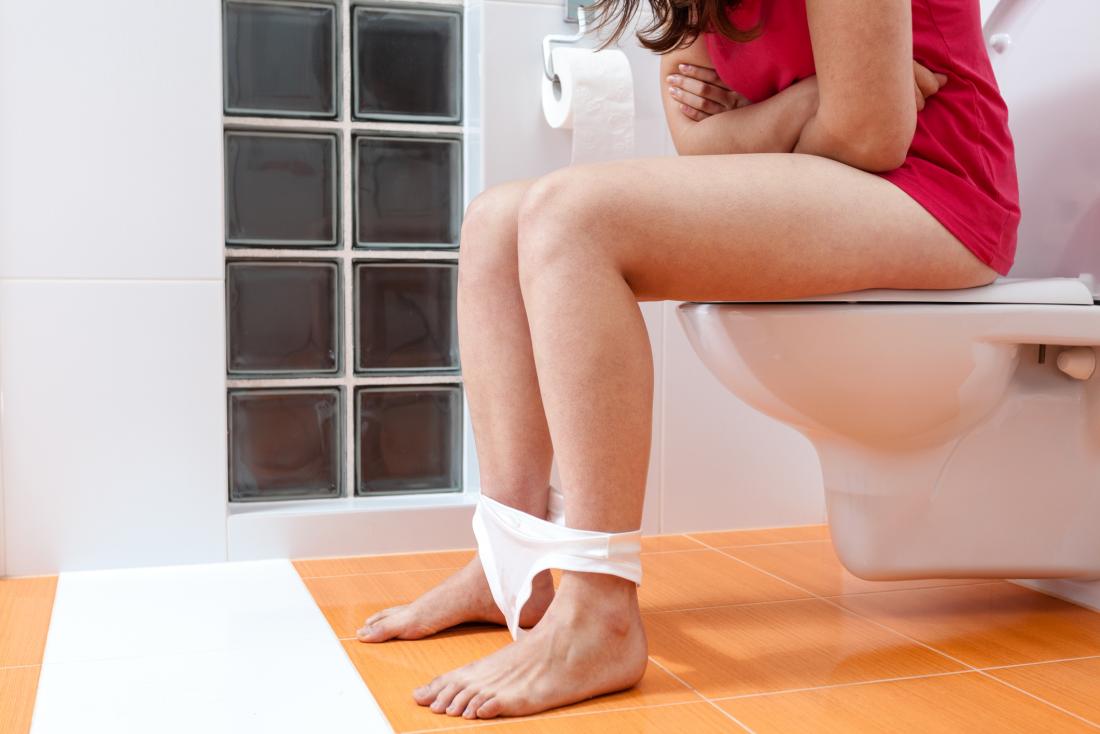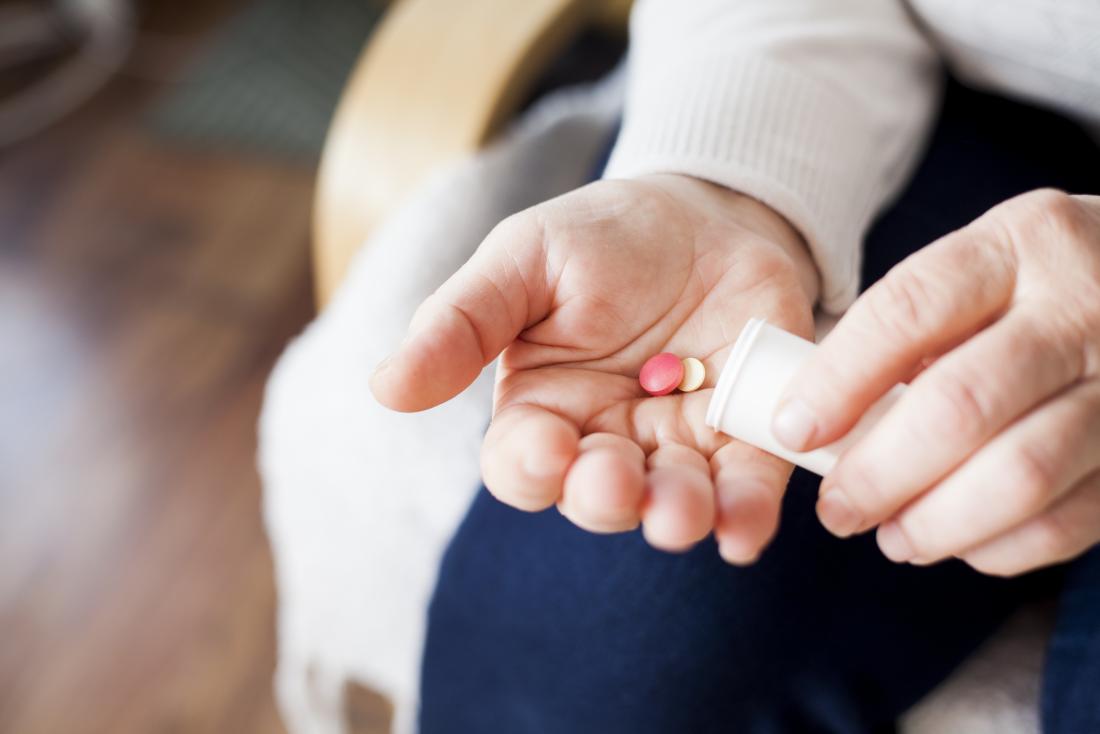Multiple potential causes for this symptom exist, and many of them are treatable.
People with dysuria should make their doctor aware of any other symptoms that they are experiencing. If these relate to the painful urination, it can help doctors make a diagnosis and recommend appropriate treatment.
Causes of dysuria
Many different conditions can cause painful urination. Most of these causes are highly treatable.
Below are 10 possible causes of painful urination, along with other symptoms that may occur alongside it.
1. Urinary tract infection

A UTI can make urination painful.
A urinary tract infection (UTI) occurs when excess bacteria build up somewhere in the urinary tract. This part of the body runs from the kidneys to the bladder to the urethra, which carries urine toward the outside of the body.
Additional symptoms
A person with a UTI may experience other symptoms, such as:
- needing to urinate frequently
- passing cloudy or blood-tinged urine
- fever
- foul-smelling urine
- pain in the side and back
2. Sexually transmitted infection
Sexually transmitted infections (STIs), such as chlamydia, gonorrhea, and herpes, can all affect the urinary tract and lead to pain when urinating.
Additional symptoms
Symptoms may vary according to the type of STI. For example, herpes typically causes blister-like lesions on the genitals.
3. Prostate infection
A short-term bacterial infection can result in a prostate infection or prostatitis. Chronic inflammation from another condition, such as an STI, can also cause prostatitis.
Additional symptoms
A prostate infection may also cause:
- difficulty urinating
- pain in the bladder, testicles, and penis
- difficulty ejaculating and painful ejaculation
- needing to urinate frequently, especially at night
4. Kidney stones

Kidney stones can cause painful urination.
Kidney stones are collections of materials, such as calcium or uric acid, that build up and form hardened stones in and around the kidneys.
Sometimes, the kidney stones will lodge themselves near the area where urine enters the bladder. This can cause painful urination.
Additional symptoms
In addition to dysuria, kidney stones can cause the following symptoms:
- pain in the side and back
- pink- or brown-tinted urine
- cloudy urine
- nausea
- vomiting
- pain that changes in intensity
- fever
- chills
- urinating only small amounts frequently
5. Ovarian cysts
Much like kidney stones, ovarian cysts are an example of how something outside the bladder can press on it and cause painful urination.
Ovarian cysts can develop on one or both ovaries, which sit on either side of the bladder.
Additional symptoms
People with ovarian cysts may experience:
- unusual vaginal bleeding
- pelvic pain
- difficulty recognizing that the bladder is empty after urinating
- painful periods
- breast tenderness
- a dull ache in the lower back
6. Interstitial cystitis
Also known as bladder pain syndrome, interstitial cystitis is a condition that causes chronic irritation of the bladder lasting 6 weeks or more without an underlying infection.
Additional symptoms
Interstitial cystitis may also cause the symptoms below:
- pressure in the bladder area
- pain during intercourse
- pain in the vulva or vagina
- pain in the scrotum
- urinating frequently but producing little urine
7. Chemical sensitivity
Sometimes, chemicals that are external to the body, such as fragrances, can irritate bodily tissues. When a person urinates, this irritation may be more noticeable, and pain may occur.
Products that can cause chemical sensitivity include:
- douches
- soaps
- scented toilet paper
- vaginal lubricants
- contraceptive foams
Additional symptoms
People who react to chemical products may notice:
- swelling
- redness
- itching
- irritation of the skin on or around the genitals
8. Vaginal infection or irritation
Also known as vaginitis or vaginosis, a vaginal infection can occur due to the overgrowth of bacteria or yeast.
An STI called trichomoniasis can also cause a vaginal infection.
Additional symptoms
The following symptoms may occur alongside painful urination:
- foul-smelling or unusual vaginal discharge
- vaginal irritation
- pain during intercourse
- vaginal bleeding, which is usually mild
9. Medication

Some medications can inflame the bladder tissues.
Some medications, including those that doctors prescribe to treat bladder cancer, may irritate and inflame the bladder tissues. This can often cause pain when urinating.
If a person has started a new medication and begins to feel pain when urinating, they should call their doctor and ask if the symptom may be a side effect of the drug. They should not stop taking the medication on their own without asking a doctor first.
Additional symptoms
Additional symptoms vary based on the type of medication.
10. Bladder cancer
Bladder cancer occurs when cancer cells start to develop in the bladder.
Feeling pain when urinating is not typically an early symptom of this condition. Instead, a person usually notices blood in their urine.
Additional symptoms
Other possible symptoms of bladder cancer include:
- frequent urination
- having difficulty urinating or passing a weak urine stream
- lower back pain
- appetite loss
- weight loss
- fatigue
- foot swelling
- bone pain
Differences in males and females
Males and females can both experience pain when urinating, and the causes may be anatomy-dependent.
For example, females have shorter urethras than males. As a result, bacteria can often enter the bladder more easily, which can lead to UTIs.
A person can talk to their doctor about their risks for painful urination based on their sex as well as their medical history.
When to see a doctor
Everyone may experience painful urination from time to time.
A person should see their doctor if the pain is consistent, and they are also experiencing the following symptoms:
- blood in the urine, which will usually appear pink, brown, or red
- pain in the side or back
- pain that lasts longer than 24 hours
- unusual discharge from the penis or vagina
- fever
If an adult has a fever that is higher than 103°F, they should seek emergency medical attention.
A person should not ignore pain when urinating. A doctor can often help identify treatments that will reduce pain.
Potential treatment options
Treatment options for painful urination depend on the underlying cause. Some examples include:
- Treating UTIs with antibiotics. Severe UTIs that affect the kidneys may require intravenous antibiotics.
- Treating prostatitis with antibiotics. A person may take these for up to 12 weeks if they have chronic bacterial prostatitis. Other possible prostatitis treatments include over-the-counter (OTC) anti-inflammatories, prostatic massage, hot baths, and medications called alpha-blockers, which relax the muscles around the prostate.
- Avoiding the use of harsh soaps or other chemical products near the genitals that could potentially lead to irritation. A person’s symptoms will often resolve quickly when chemical irritation is the underlying cause.
At-home care for painful urination often includes taking OTC anti-inflammatory medications, such as ibuprofen.
A doctor will often encourage a person to drink more fluids as this dilutes urine, making it less painful to pass. Resting and taking medications as directed can usually help relieve most symptoms.
Summary
Painful urination is a common symptom with many causes, several of which are related to bacterial infection.
People who feel ill should see their doctor before an infection has time to get worse and cause additional symptoms.
